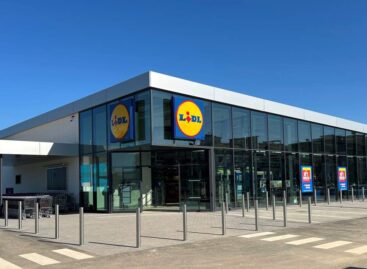What can 2022 bring in consumption habits and in retailer reactions to changing habits?

Krisztina Bodnár
business development manager
GfK
According to data from GfK, the changes in shopper behaviour primarily affect 5 areas: 1. we manage the pressure on us caused by the virus situation by paying more attention to living in harmony (balance); 2. we don’t simply want to purchase products, we also check whether they fit into our set of values (purpose); 3. we must focus more on the price-value ratio (budgeteering); 4. shopping needs to be done fast, so it is best if product information is easily accessible both online and offline (findability); 5. the lines between home, workplace and school have become blurred (fluidity).
Balance, purpose
Dutch retail chain Jumbo started its Kletskassa programme in September 2021: at these checkouts customers can have a chat with the cashier, no one is in a hurry. The retailer thinks stores are important meeting points and they can do something for the mental well-being of shoppers.
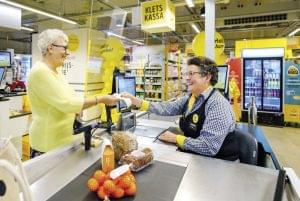
In Germany the CAP Markte retail chain – they run more than 100 stores in Baden Würtenberg – employs disabled shop assistants too, more than half of their workers live with some kind of disability. The shops are easily accessible for the disabled and if the customers need it, they can get assistance for the shopping process – not only those who are disabled, but the elderly as well.
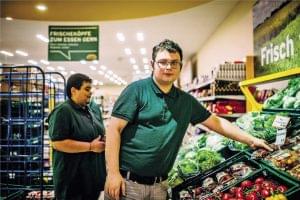
Budgeteering, findability
In the Netherlands retail chain Albert Heijn uses colour coding to guide shoppers to those products which are economical to buy. Products in promotion are marked with orange and permanently low-priced products are indicated by the colour blue.
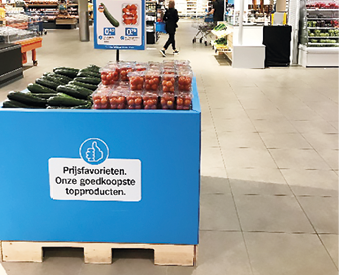
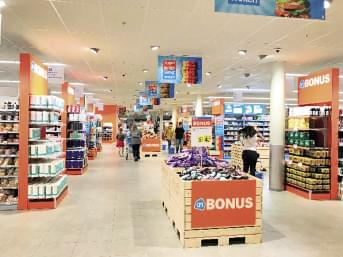
German retailer EDEKA is selling ‘Clever Kochen’ bags for meals. All shoppers need to do is pick one of the recipes on offer and take a bag that contains everything they need to prepare the given dish. Shoppers don’t have to look for the cooking ingredients in the shop and they only pay for as much as they need to cook for two or four people. Meanwhile in Hungary retail trade is getting excited about the option of cashierless payment in stores. The question is whether Hungarian shoppers will put their trust in this new system.
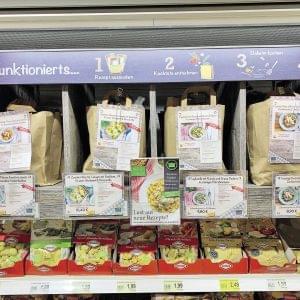
Fluidity and making shopping easier
Let’s see what is happening in our region. In the Czech Republic at the retailer Rohlik – they are present in Hungary with kifli.hu – online FMCG purchases can be picked up in a contactless fashion at pick-up points. There are two versions of these, Rohlik points which are located outdoors and there are also indoor collection points, in offices and other freely accessible buildings.
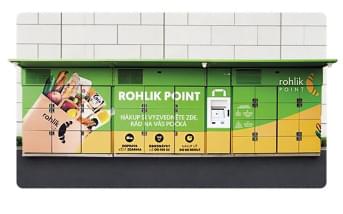
Partly due to the effects of the COVID crisis, retailers are coming up with new ideas – store concepts, products and services, to serve the new-type customer needs. Shoppers have become more conscious and their purchases are more targeted. It is very likely that the in-store innovations of the future will be much more about facilitating shopping than about entertaining consumers. //
Related news
Lidl has published its 3rd sustainability report
Lidl Hungary’s sustainability report for the 2022/2023 business years has…
Read more >TikTok conqueror: Dubai chocolate craze at Lidl
As the Christmas holidays approach, there is an increasing demand…
Read more >Famous YouTube star donated the entire stock of an Edeka store in Berlin to those in need
MrBeast, one of the world’s most famous YouTube stars, has…
Read more >Related news
The Joy of Giving! – SPAR stores collect non-perishable food for people in need
The Hungarian Maltese Charity Service and SPAR Hungary have launched…
Read more >Technological advancements and business travel
The latest research from International Workplace Group (IWG), the leading…
Read more >K&H: a gift, but what and from which store?
When it comes to Christmas gift-giving, clothes are the most…
Read more >

